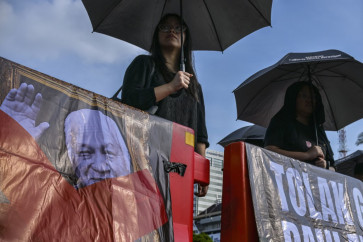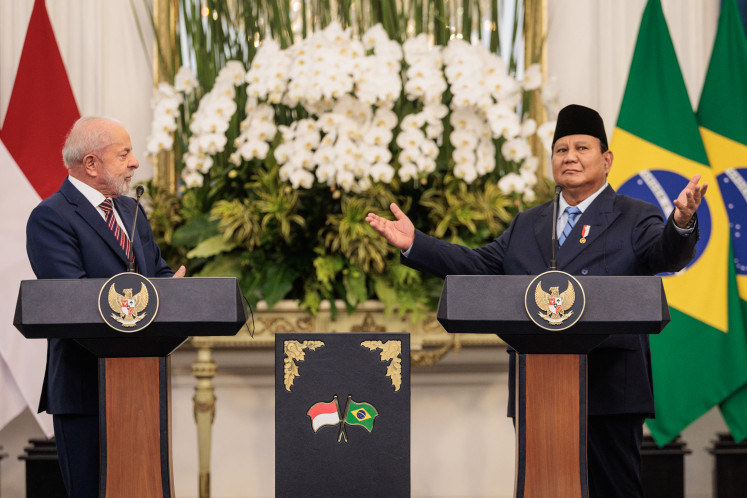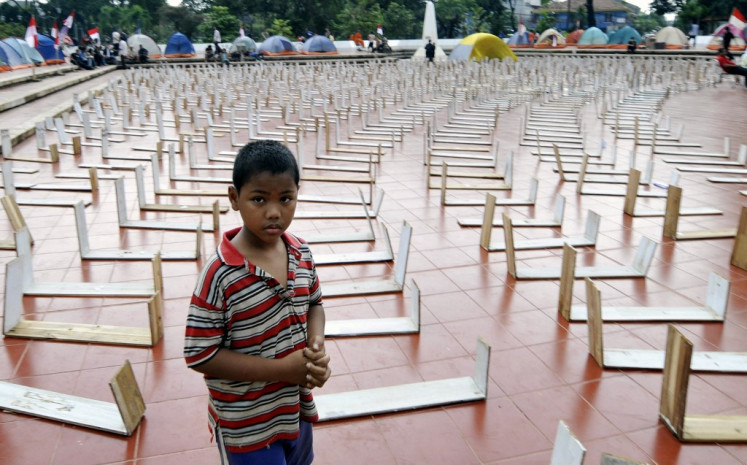Popular Reads
Top Results
Can't find what you're looking for?
View all search resultsPopular Reads
Top Results
Can't find what you're looking for?
View all search resultsFamily planning still not seen as human right in Indonesia
As the world commemorated the 50th World Population Day on Wednesday, the United Nations chose “family planning is a human right” as this year’s theme
Change text size
Gift Premium Articles
to Anyone
A
s the world commemorated the 50th World Population Day on Wednesday, the United Nations chose “family planning is a human right” as this year’s theme.
However, the concept of planned parenthood remains antithetical to the more conservative elements of Indonesian society.
“Women and girls have the right to avoid the exhaustion, depletion and danger of too many pregnancies, too close together. Men and women have the right to choose when and how often to embrace parenthood — if at all. Every individual has the human right to determine the direction and scope of his or her future in this fundamental way,” the UN stated on its website.
National Population and Family Planning Board (BKKBN) deputy for population control, Dwi Listyawardani, acknowledged the challenges in familiarizing Indonesian people with the concept of planned parenthood, despite decades of campaigning.
Limited access to free contraceptives or information on family planning and a lack of awareness of planned parenthood have been cited as the major explanations. But it is culture and religious belief that largely prevent Indonesian people from accepting the idea of family planning as a human right. As a result, many people reject the concept of planned parenthood and refuse to use contraception, regardless of their economic status.
“Many have access to the programs but they still refuse to take advantage of them, and we can’t force them to because that’s their right. All we can do is try to persuade them and inform them about the programs,” Dwi old The Jakarta Post on Wednesday.
In Indonesia, the 2017 Demographic and Health Survey showed that the contraceptive prevalence rate among citizens of reproductive age was 61.9 percent.
However, the agency admitted that the average did not represent the prevalence rate in every area.
“When it comes to the use of contraception, there is still a big gap especially between the regions in the western parts of Indonesia and the eastern parts. In Yogyakarta, for example, the rate can reach 76 percent, but in Papua the rate is very low at only 28 percent,” she said.
In the eastern part of Indonesia, the classic problem that hampers the realization of family-planning programs is inadequate health facilities and staff, especially for those who live in remote areas.
Dwi said the agency aimed to increase the contraceptive prevalence rate to 66 percent by 2019.
It also expects that the total fertility rate will decrease to 2.28 children per woman in 2019 from 2.6 children currently.
Acknowledging the challenge that family-planning campaigners face in the field, Satyawanti, the executive director of Indonesian Planned Parenthood Association (PKBI), suggested that the government customize programs to fit different communities across Indonesia.
“The government must not use the same family-planning program in every region across Indonesia, because each region has its own unique culture and beliefs,” she said. “It is important to ensure that every pregnancy is wanted, intended and planned.”










